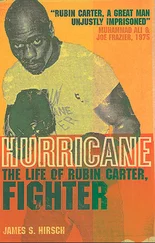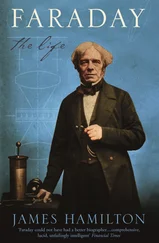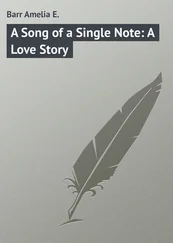Jeremy makes calming shushing noises. “This?” he says. “It’s like I’ve never seen you. Oh,” he says, looking with surprise at the document in his hands. “Where did this come from?”
Jeremy hands him in return a file containing information on the drug that Robert has been secretly giving his wife. “Now that we’re done here,” Jeremy says, “I just wanted to let you know that I despise you. As far as I’m concerned, you stand for the worst of humanity. Hugo, show this man the door.”
Hugo shrugs and gestures towards the door. “Do you think you can find your way back alright?” Hugo asks.
“I think so,” Robert says.
At the bus stop, Robert runs into the same gang of children. He would guess, from looking at them, that most of them are around seven or eight years old. “Are you from the mafia?” they ask.
Robert laughs. “No,” he says.
“Are you from the government?”
“Nope,” he says, smiling.
One of the children shoves him while two others go for his legs. Robert hits the ground, hard, and the children swarm him. “Hey!” Robert yells. One grabs his wallet. Another gets his phone. A third kid kicks him repeatedly in the kidneys. Then, just as suddenly, it’s over. The bus pulls up and the kids run off before he’s even had the chance to get back to his feet. Robert grabs up, as best he can, the papers that have come loose from the file folder Jeremy gave him.
“You getting on?” the bus driver calls from the open bus door.
“Did you see that?” Robert asks.
“Last bus of the day,” the bus driver says.
Robert gets on but doesn’t have any money for the fare. “They just took my wallet,” he tries to explain. The bus driver looks at him, blankly. “Look, if you just take me to a bank,” he starts.
“This ain’t a taxi,” the driver says.
Robert turns to the other passengers. They stare at him flatly, refusing to help.
The self-storage facilityis a kind of labyrinth, with hundreds of possible centers. There is no way to orient oneself, once one is out of sight of the metal gates — the rows of doors stretch on seemingly forever — above the doors are numbers, but it is impossible, at a glance, to understand their organization. Behind any one of these, perhaps, might wait the minotaur, in black goggles and fake fur coat, two shining pistols — Is it better to keep wandering through the labyrinth, or try to walk home? It is almost dusk — the sky is the color of sunburnt skin — both options raise, in Robert’s mind, the face of the dead man, fat and red and expiring, running out of breath…
They didn’t take my car keys, Robert thinks. If worse comes to worse, I can walk back to town — it’s what, five or six miles — that’s entirely possible — Still, he doesn’t like the thought of walking so far through the west side at night. He keeps thinking about the dead man’s red face… He is aware of people all around him, human bodies — for the most part, they do not pay attention to him — he is just another body — From time to time, a pair of glassy eyes takes in his suit, Robert can tell that there is an act of appraisal going on — He thinks, It is vital to look like I know where I am going. But of course he doesn’t.
Robert finds a place to settle down for a moment, his back against one of the buildings’ cinderblock walls, ass on cold concrete. He looks through the folder that Jeremy gave him. The pills he has been feeding to Viola and himself are being marketed under the commercial name Milamor , but they have previously appeared under different names— Ligatal, Amebgyn, Keratexx, Sartrex, Cryptogest . The true name, the pill’s chemical formulation, is longer and more complex than Robert can pronounce, but its letters seem to hold a power over him, nonetheless. Previous versions, in some cases with formulation and dosage slightly tweaked, have been marketed for military purposes, for the questioning of unwilling sources, a means of instilling trust between interrogator and interrogated…
Glancing up, he sees a woman who looks very much like Viola. He almost calls out to her, then stops himself. Idiot, he thinks. Of course it’s not her. But her face, her build is so similar — it could be her sister, or Viola in five years’ time. With her is a boy maybe six years old, wearing a knit cap that doesn’t entirely cover his sandy blond hair. Possibly one of the children who attacked me, Robert thinks. As if in response to this, the kid starts to turn. Robert scrambles around a corner, then peers back out.
He follows the two of them back to their storage unit, keeping as much distance as he can while maintaining a sightline. He has a sense, though, that even if the woman were to see him, she’d look right through him — as though he and this woman inhabited different planes, touching precariously at a single point. If we’d had a child when we first tried, Robert thinks, he might be this age. That could easily be his face. In the storage unit, the door still rolled up to let in the air, the woman takes off the boy’s cap and, crouching down, rubs at his cheeks and nose with a wet-nap. With the cap gone, Robert can see, even from this distance, two horns, or boney protrusions, one above each eye. Robert is filled with sympathy. There is so much suffering in the world, he thinks. Why are we made like this, that we can only feel someone else’s suffering when we can imagine it to be our own? I will become a benefactor, Robert thinks. I will raise up this people from their suffering.
The woman lights a kerosene stove and uses it to heat the contents of two cans of food, which she then spoons onto a pair of plates. The boy eats ravenously. His mother smiles at him and pushes the food around with her fork. When the boy is finished, she passes her mostly-untouched plate to him. Robert settles down against the side of a storage unit and spreads his sport coat over his legs, a makeshift blanket. He watches the woman wipe off the plates with wet-naps. He watches her spread blankets over the boy and kiss his head.
Outside the gatesof the self-storage facility, the men in riot gear wait. A signal will come, and they will descend.
Robert dreamsthat he is in a desert, walking for miles, directionless. Each of the grains of sand in his dream is a tiny person. Thousands of tiny people shriek out in terror whenever he takes a step. He feels an overwhelming sense of pity, but tells himself that he’s in the desert, and in the desert one must worry first of all about one’s own survival. At night it’s possible to freeze to death in the desert, he tells himself. I have to keep walking.
Then everything is lightand noise, and Robert is awake, his heart beating wildly, the dream, even the fact of having been asleep, forgotten. Floodlights surround the periphery of the storage complex. Orange doors pulled up, fought with, thrown open, guinea-piggers stumbling, running, masses of people being pushed forward by other masses, pressing into masses pressing the opposite direction, guinea-piggers falling and being trampled under the feet of other guinea-piggers. And from all sides, increasingly pushing their way in, men in black suits and riot gear, batons held at six and nine, shouting in a single voice MOVE MOVE MOVE MOVE, two-handed thrusting the batons forward in unison with each MOVE. The woman who looks remarkably like Viola is screaming out that she has lost her son, and in the next moment Robert has lost track of her in the mob. The feel of so many foreign bodies pressed against his, the stink of it — Robert wants to yell out that he is not part of this, he is something different than this mass, but there is an elbow against his throat, there is a hand on his face, fingers reaching for something to grip find their way into his mouth, into his nose, he presses his eyes shut in fear of having them mindlessly gouged out. It is impossible to say how many people he is in the middle of, it could be a hundred or a thousand, the world seems filled with them and Robert’s options, suddenly, limited to the terrified mind of this press of bodies.
Читать дальше
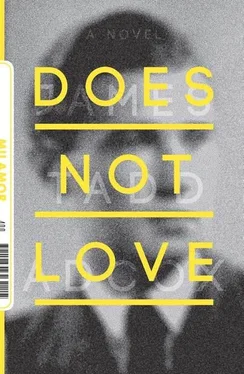


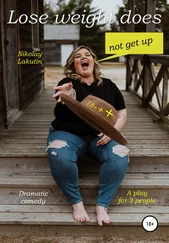
![Jakob Wassermann - Issue Does Not Exist],errors:{](/books/585068/jakob-wassermann-issue-does-not-exist-errors-thumb.webp)


